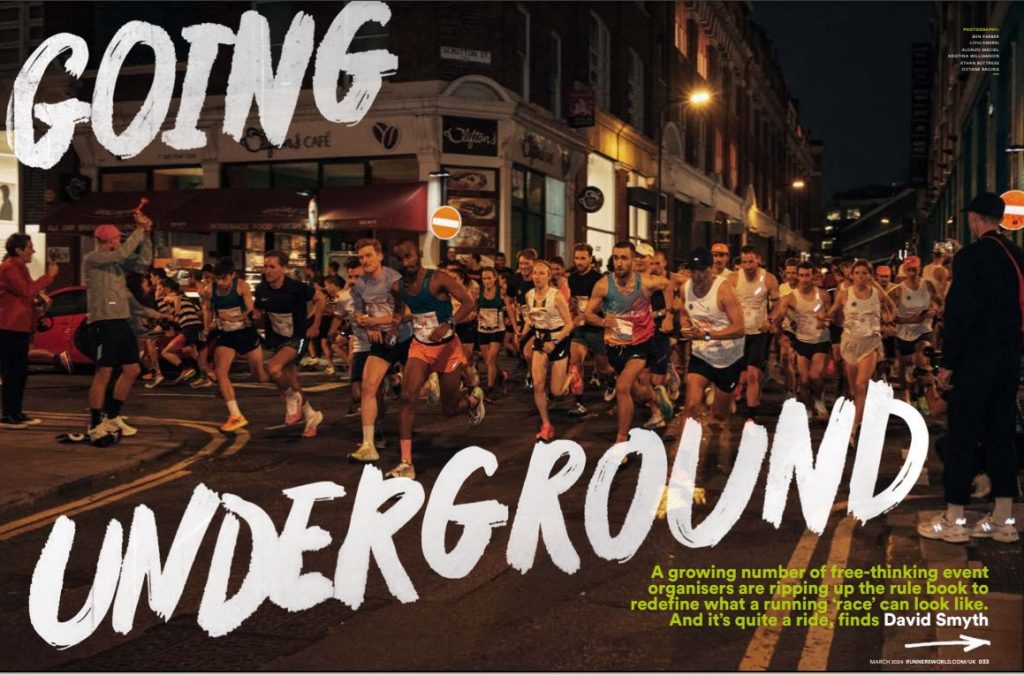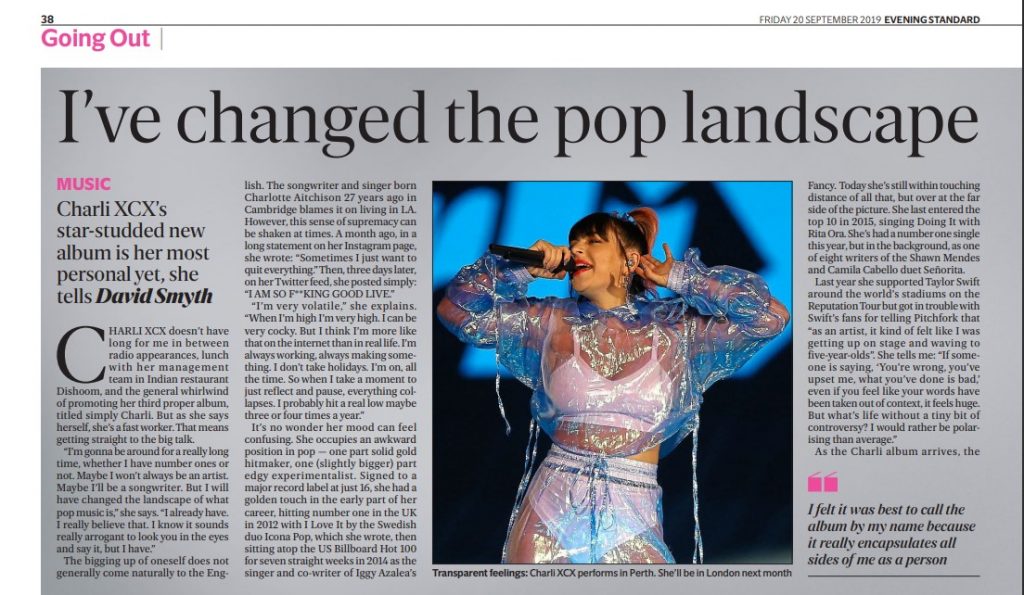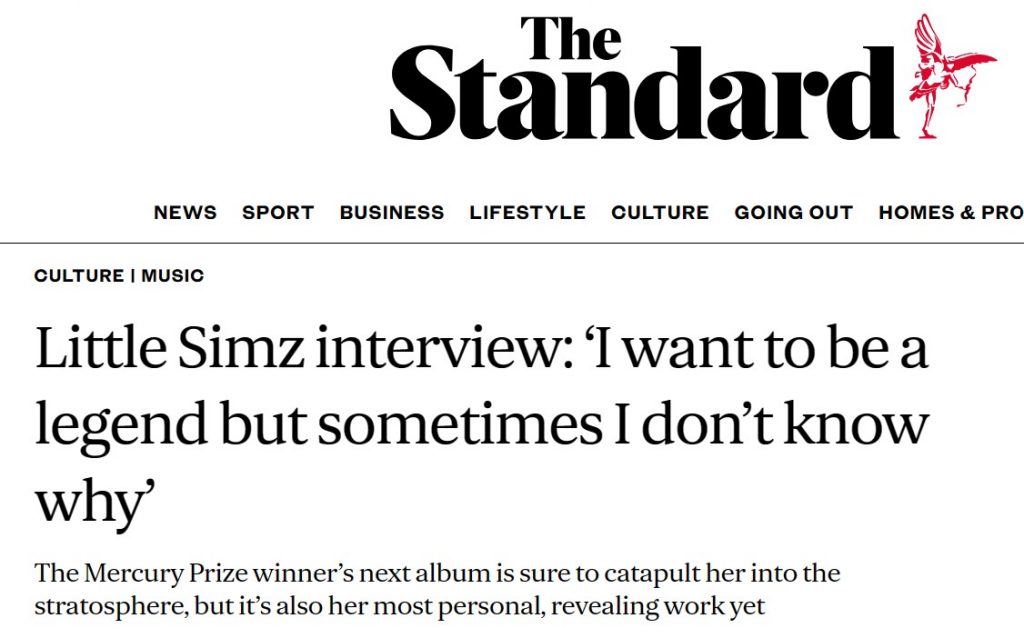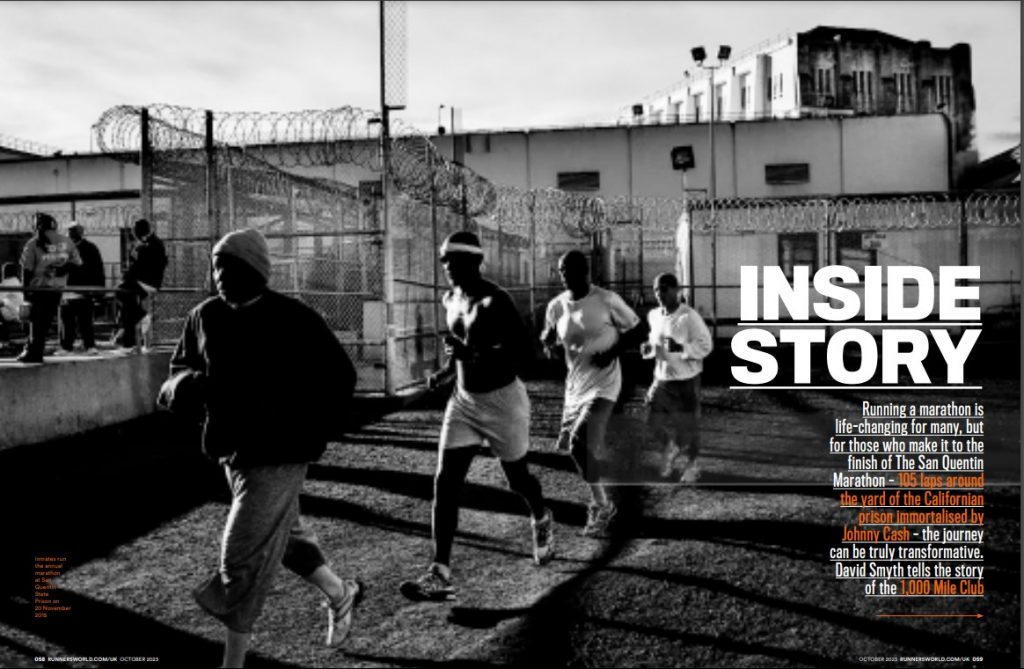As an English Literature student at Leeds university, Bastille frontman Dan Smith wrote an essay on the book Adventures in the Screen Trade by William Goldman. The screenwriter’s blunt 1983 expose of the movie industry contains the memorable central premise: “Nobody knows anything”. The idea that even the most influential figures in the creative business don’t have a clue what will succeed, and what won’t, is useful for understanding the rise of Smith’s band too.
“We’re a perfect example of that,” the 30-year-old tells me. “Our first album, I literally wrote on the desk at the end of my bed. There was something undeniably satisfying about sitting in the charts between people who we think are incredible, but who have other people write songs for them. It was a surprise and that means we’ve enjoyed it so much more, because at every point we were defying expectations rather than meeting them.”
Smith does a good job of playing the underdog for someone whose band recently announced two shows at the O2 Arena. Bastille’s second album, Wild World, is sure to be one of the year’s biggest sellers when it arrives in September. Bad Blood, their debut, spent 73 weeks inside the UK top 40 between 2013 and 2014, including almost half a year in the top 10, going double platinum in the process. The big single, Pompeii, with its massed vocals, dancey synths and thunderous drums, went five times platinum in the US. But radio and the press were slow to notice their sizeable sales of downloads and gig tickets.
When we meet in a Chiswick recording complex, they’re holed up for a day of interviews with journalists from across Europe, which still seems like a new thing for them. Bassist Will Farquarson is present too, possibly as more of a security blanket for Smith and with about as much chance as a blanket of getting a word in.
“It took a lot of people in the industry a while to take note of and engage with us, and that’s fine,” says the singer. “But we were lucky that it didn’t take time for actual people to like us. It couldn’t really have been more organic and natural.”
It perhaps didn’t help their cause with the cultural gatekeepers that they’re so hard to categorise. Aside from Smith’s towering hairdo, which seems to add a foot to his already significant height, they look like a fairly nondescript indie band. Yet there isn’t much guitar on their songs, which sneak odd lyrical themes into easily digestible pop choruses. They revived the unfashionable Nineties Eurodance of Corona and Snap! on their pretty awful hit single, Of the Night. Then there are their three hip hop-style mixtapes titled Other People’s Heartache, which feature cover versions, snippets of movie dialogue and an eclectic range of collaborators from Ella Eyre to Skunk Anansie.
“Something that comes with having a hit, is you exist in a space where a massive amount of people only know you for one thing,” says Smith. “But I want it to be as rewarding as possible for the people who want to engage with all the other stuff – the mixtapes, the videos, the artwork – there are loads of layers. For some people we’re just a song they heard on the radio, and for others there are all these weird little worlds we’ve created.”
I’ve been converted by Bastille’s comeback single, Good Grief, which manages to begin with a snappy bassline and a quote from Eighties teen sex comedy Weird Science, and go on to become a depiction of confused, emotional behaviour at a funeral. It’s an unusual subject for a catchy pop song, I venture. “But dude, Pompeii was a song about fictional ashen corpses having a conversation in my head,” Smith retorts. “Within a three-minute pop song we can do whatever we want, and I’d rather be writing about things that interest us than falling back on well trodden paths.”
He’d prefer not to specify which death prompted the song. “Enough people have died in my life that I’ve been to more funerals than I would like to have been. They’re just very surreal experiences, aren’t they? This pre-existing ritual that’s designed to make people feel better. It’s almost an out of body experience, the feelings around it are so extreme, and I wanted to try and capture that mad weirdness of the situation in a song. I wrote probably 30 verses for that song because there was so much to say about it. The ‘Good’ in the title is meant to be enigmatic. Is there anything good in grief? I don’t know.”
I’ve been granted access to eight songs from the new album, which was recorded, as was Bad Blood, woth producer Mark Crew in the band’s tiny basement studio in Battersea. “We never even remotely entertained the notion of doing it with anyone else,” says Smith. “It is a weird life, being on tour, so when we’re back we want to go back to being as normal as possible.” The song Two Evils may surprise some people. It’s a dark, bluesy guitar ballad on which Smith pushes his voice further than ever. Having introduced many young fans to the wonders of Twin Peaks with their early song Laura Palmer, this time their followers will be reading Truman Capote’s In Cold Blood after hearing Four Walls (The Ballad of Perry Smith).
The one that leaps out straight away, however, is The Currents. “I can’t believe my ears, I don’t wanna believe my ears,” Smith sings over stabbing strings and a growling electronic bassline. It’s about the poisonous opinions of certain politicians who the singer declines to name. “Of course we had people in mind, on both sides of the Atlantic. We’ve resisted talking about it because I don’t want to get into personal attacks, but I think it’s quite obvious who it’s about.” It was written at the end of last year, but when the band aired it on stage at Glastonbury on the day of the Brexit result, it felt like perfect timing.
“It was almost like we’d written it for now. It’s about that feeling of complete exasperation when you hear someone, be it on the news or in the pub, saying stuff that you can’t believe they can possibly think. At the moment a lot of those opinions seem omnipresent.”
Post-Brexit, I suggest that they might have to change the band name to a good old British historical reference, like Trafalgar or Agincourt. “Let’s be glad we didn’t start talking about this at the beginning because it would have dominated the entire hour,” Smith says, morosely. They’re so-called because his birthday falls on Bastille Day. We meet before the Bastille Day attack in Nice this month. He tweeted following the tragedy: “Absolutely horrific reading about what’s happened in Nice. Our thoughts are with anybody involved or affected.”
He’s fascinating company, frequently digressing into discussions of various movies. As a younger man he wanted to be a film journalist and just made music for fun. If I turn my dictaphone off he promises to tell me about the “incredibly famous people” who’ve come to work in Bastille’s studio, and the practicalities of securing the new album cover. It’s a shot of two young men sitting, presumably illegally, in a precarious spot at the top of a New York skyscraper. “Officially it’s an image that we found online,” he says enigmatically.
He does explain what the image represents: “It’s about existing in the dramatic world that we exist in, about that moment of just being there – not about the getting there or what happens after.”
With so much drama every day right now, that’s about all we can do. It falls to this defiantly odd pop band to provide the soundtrack to a very strange year.
The single Good Grief is out now on Virgin. Wild World is released on Sept 9.
Bastille play Nov 1-2, O2 Arena, SE10 (0844 824 4824, the02.co.uk)











